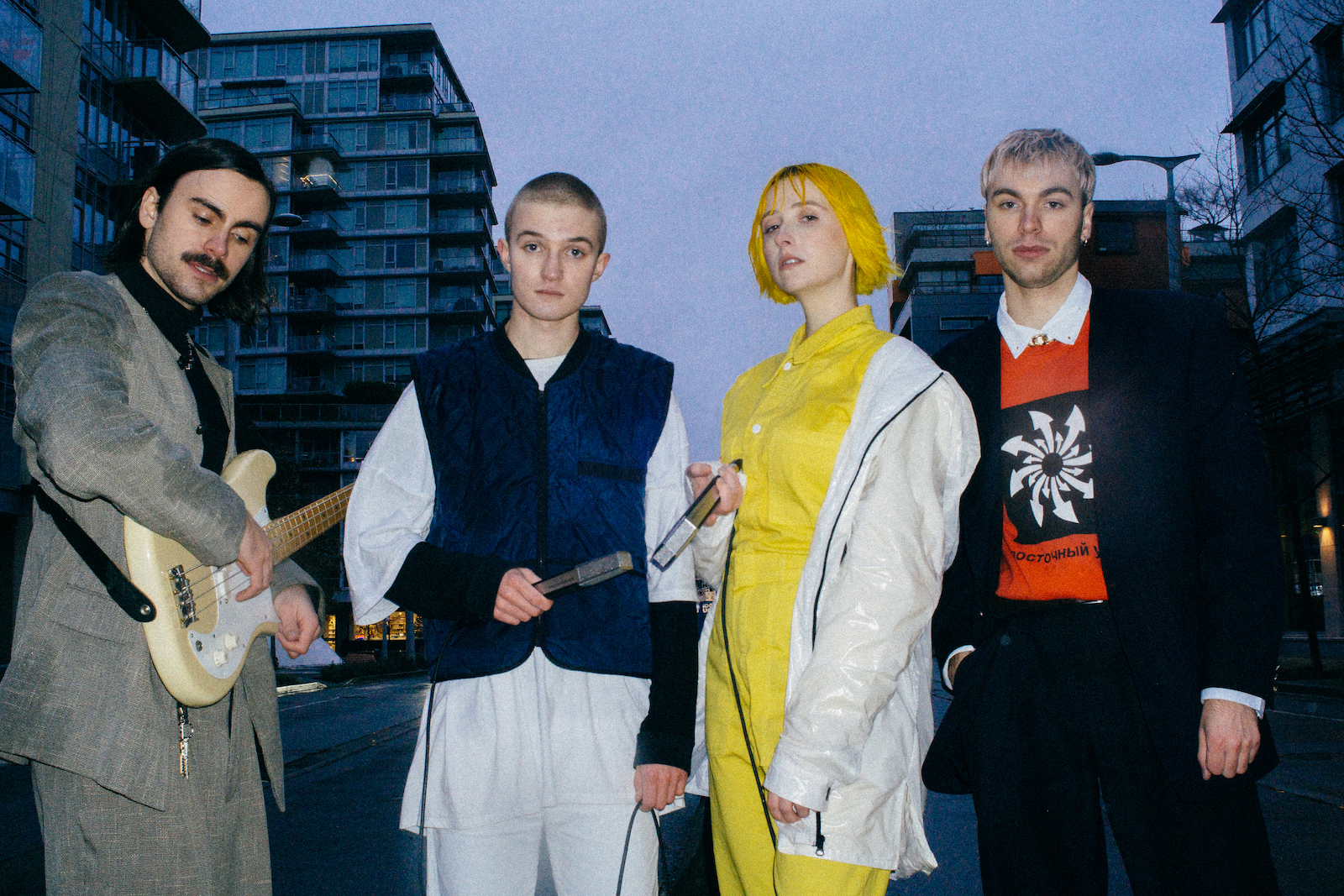
The story of daysormay and Tessa Violet begins with a tweet. Often we see our favorite artists on social media, beckoning fans to offer new music suggestions, but rarely do we expect these relationships to go further than a follow on Instagram or a save on Spotify. For Tessa and Aidan, Carson, & Nolan of daysormay that fateful tweet was the onset of an ongoing personal and professional relationship, one that continues to blossom today (thanks @whoeveryouare, we commend you).
Falling in love with their sound from first listen, particularly the 2018 version of “Role Model,” Tessa invited the three-piece Vancouver-based band to join her on her 2019 headlining tour. Becoming fast friends on tour, the personal began to blend into the professional, culminating with daysormay being signed to Tessa’s label T∆G Music. Hence, the “full-circle” moment has commenced with the re-release of “Role Model,” the song that initially drew them together but this time featuring Tessa Violet.
Showcasing the quartet’s special connection, the song is joined with a visual companion. A self-dubbed “manic shoot” which took place immediately following an all day and night session in the studio, the video was shot between 3 AM – 5 AM in Vancouver on zero sleep. In Tessa’s own words, “We were like maniacs on that shoot day. We literally went straight from the studio at like 3am to shoot at dawn at 5am and were up for well over 24 hours. So much fun though to just be the four of us and our camera op running around Vancouver to put together this music video.”
Today we find ourselves at an unprecedented moment in not only real life, but our virtual lives as well. In the midst of a pandemic, during which the online space has been utilized more than ever before, we also find ourselves at the crux of the largest Civil Right movements in history. A unique time for activism and the ongoing fight for Black lives, this movement has partly been so wide spread due to the free flowing exchange of information, largely through social media. Artists, activists, and celebrities alike have used their platforms to urge their followers to remain silent no longer by protesting not only in the physical but educating and organizing their efforts through the digital. Tessa Violet and daysormay are no exception, speaking publicly on government reform for equality and their support of the Black Lives Matter movement, while putting words to action by taking to the streets to protest in person.
Here to discuss artistry and how we can weaponize our platforms for activism, read on for a conversation between Tessa Violet & daysormay.
daysormay: What was the pivotal moment in your life that led you to make the decision to
become an artist?
Tessa: I just knew in my heart it was what I wanted to do. It felt like a betrayal to self to do anything besides give everything I had to music. There was no other option.
daysormay: When did you write your first song?
Tessa: 23! My friend left his guitar in my car and moved and I thought it was such a shame no one was playing that instrument. So I decided to learn, and then I thought hey… a week ago I thought I could never play guitar and now I (sort of) do, maybe I could write a song too? What else am I capable of?
daysormay: What is the most valuable piece of advice you’ve received? (so far)
Tessa: Haha dude, I’ve received soooo much valuable advice! But one of the best was from a comedian friend Mike Falzone, who gave me the advice of “this is not your make or break moment,” which is true of almost everything you do. I think when people first start out especially, everything you do (every show, every song, every meeting)… there’s just a huge amount of pressure on it, and if you can free yourself from that pressure you are going to have more freedom in everything you do. Because it’s true, no one thing makes or breaks your career. Every little thing you do is a small piece of the many-thousand piece puzzle that is your career and life. Treat every experience as a learning opportunity. A gift from the universe for you to grow.
daysormay: Do you find it’s hard not to obsess over numbers, followers, etc? How do you measure success?
Tessa: Not really! In truth I hardly ever look at views or likes, except where it’s necessary data collection for industry things. Careers are long and numbers come in waves. I’m more focused on meaningful connections with my fans and with the people I make art with. That’s what matters.
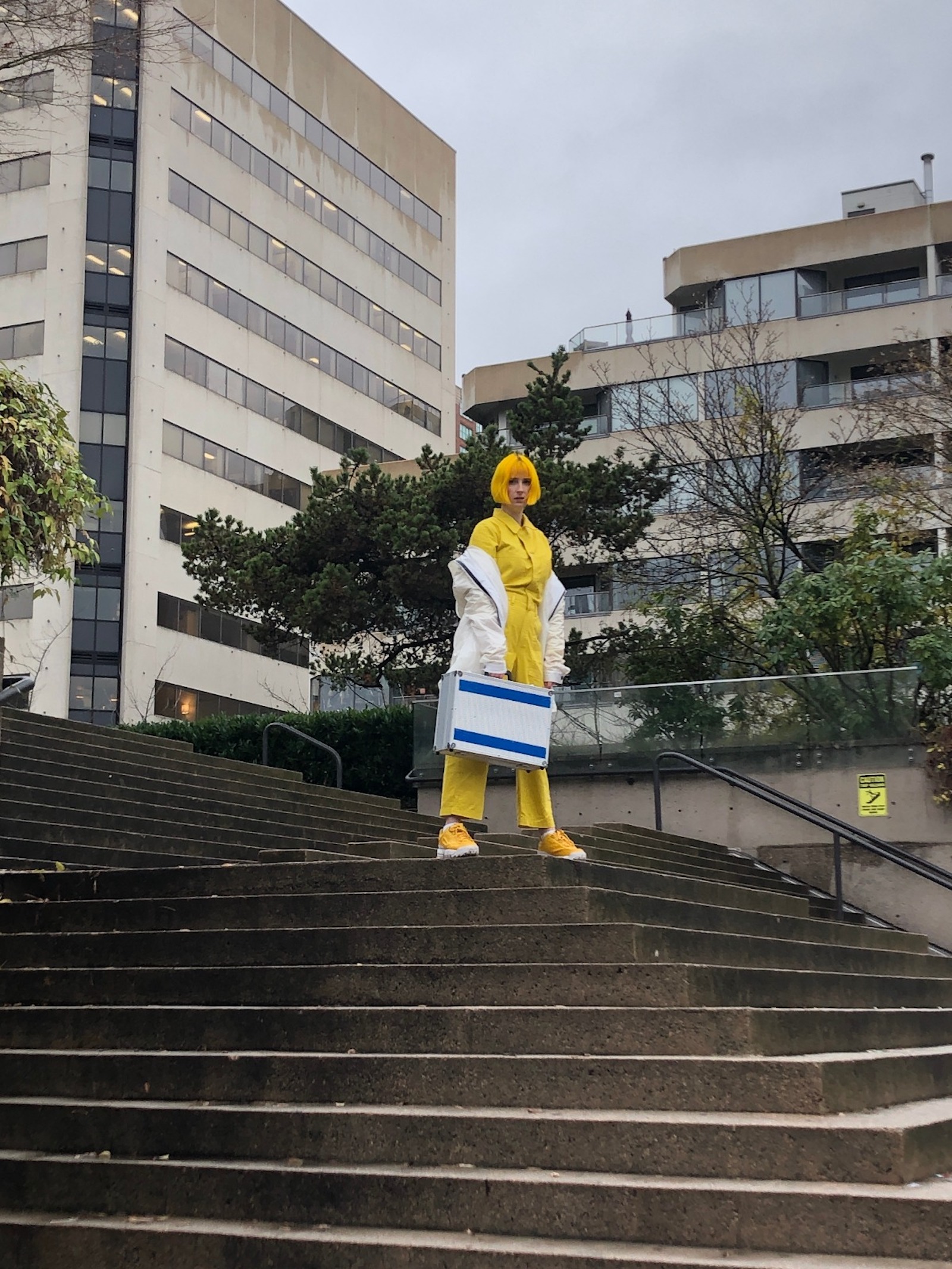
daysormay: Do you have any other creative outlets other than music?
Tessa: Fashion, baby!! It’s so funny because I can not emphasize enough how much of a 180 I’ve had with fashion. A year ago today I saw fashion as a burden, I felt like I had to look cool but I didn’t know what “cool” was and I never felt that way. But just in the last half year I’ve gotten very into thrift, sustainable fashion, and just developing a sense of what I think is cool and lights me up independent of what is “trendy”. I looooove a long coat with a mini dress, color blocking, and I’ve gotten very feminine with my fashion lately which has been fun! I love expressing myself in this new way. It makes me feel powerful. The other day a stranger told me it was like my heart was on fire and I was like yes sir. That is true and I’m glad you can see it!
daysormay: What is the importance of using your social media as an amplifier for change in communities?
Tessa: As a starting point, you can’t change what you don’t know is a problem. Social media allows us to spread information that might not otherwise have been reported on. We (people) decide what society we want to live in and if enough of us decide we want change, we can change it. Plus I think when you see all your friends getting involved in something it’s inspiring. We want racial justice and it can feel impossible to overcome but when you see in real time, “wow, all these other people refuse to accept that,” it inspires you to act.
daysormay: Do you see parallels in social media and community? And why is it important to recognize the differences and similarities both have?
Tessa: Where community is something all human beings desire, I try to think of social media as a tool, which is to say it is neither bad nor good it’s neutral. A hammer can be used to build a house, but a hammer would be destructive in another circumstance, like you wouldn’t use a hammer to try and paint. Social Media is a great tool for building community and getting information, but is it helping you to spin out for hours without taking action? Try to be proactive with your social media. not a passive consumer. and again, it’s not that it’s “bad” or “good” it’s just does it serve you?
daysormay: Do you feel like escapism in art/music is still valid nowadays? Or do artists have more of a responsibility now to talk about/react to the reality of today’s society/world?
Tessa: To me, the answer to both is yes. If you have a platform I think you should use that to help people/make change. Also change doesn’t happen overnight, and rest is an important part of staying active. You can’t run at 100 all the time, it’s important to take breaks, whatever that break may look like. Then you can return to the hard conversations / protests / making phone calls rested and ready to work.
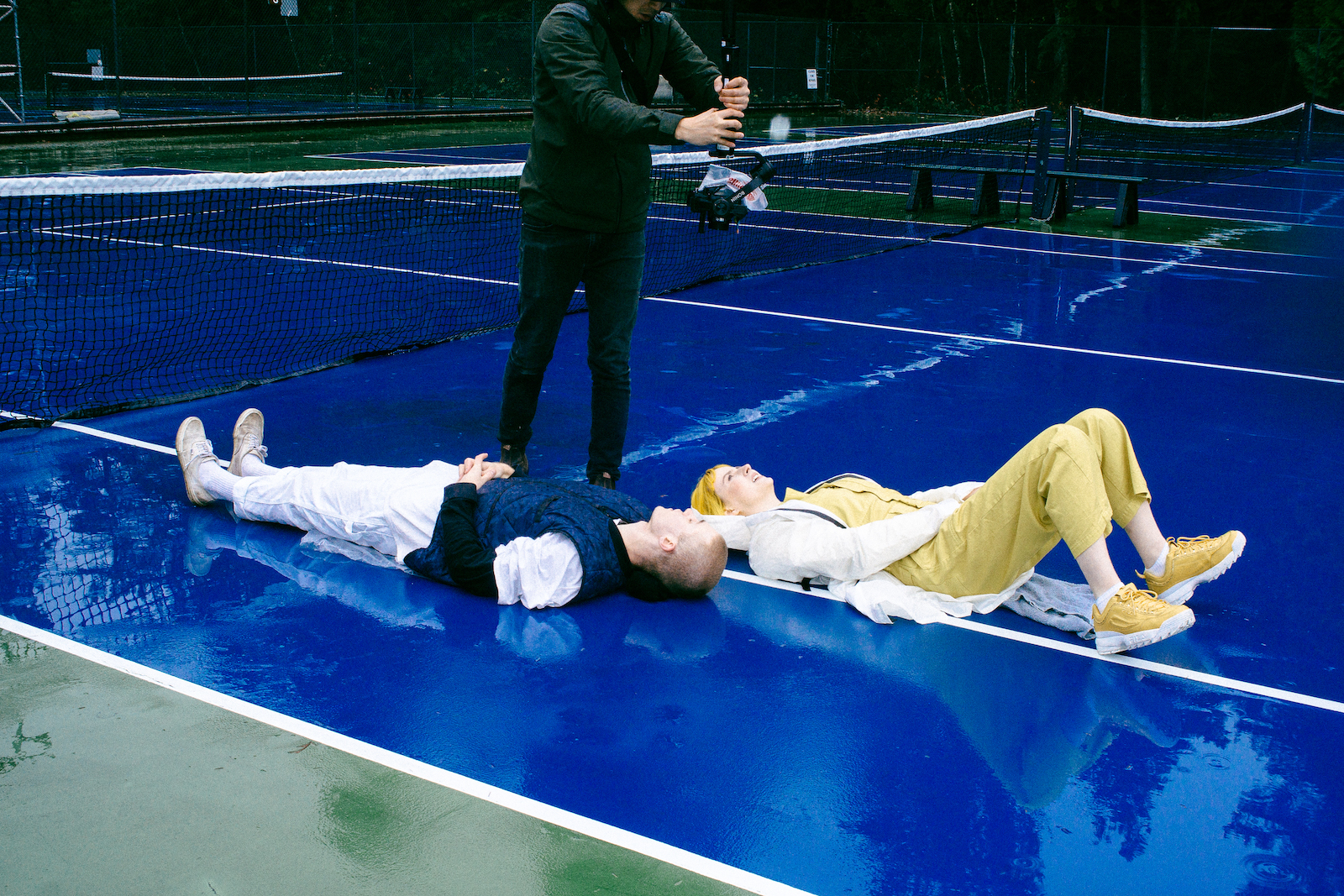
Tessa: daysormay first of thank you so much for sitting down with me in this email. I’d love to start by asking, is it difficult carrying the weight of the music industry on your back while also being fashion icons?
daysormay: Thanks for sending us these questions! Yes, Nolan’s back has been sore for a while.
Tessa: Incredible no but for real. Tell me a little about writing Role Model. What inspired it?
Aidan: I don’t want to take away from anyone’s personal interpretation of any of our songs, but the origin of Role Model’s lyrics was an interview we did in 2016. They asked us if we had any advice or messages to pass on to younger artists, and I couldn’t answer the question. That really messed with me, I couldn’t let it go for a long time.
Tessa: What’s the most important thing to you all when you think of your fans?
Aidan: We want to know their names, their faces, what their interests, fears, and dreams are. We feel really lucky because we’ve been able to connect with them on a pretty personal level so far. That relationship makes us feel weird about calling them fans, it’s more like friends at this point. We are really happy about that.
Tessa: What did you love about music when you were first getting started? Who were your favorite bands as a kid?
Carson: I think when you first start an instrument, you have the most fun just playing stuff that could be considered “wrong” but as I continue to play and practice, it’s the moments of curiosity that really make it the most fun. Growing up I absolutely loved Rage Against the Machine, they just really believed in their message, and that was inspiring.
Aidan: I’ve been saying that I started writing songs cause I thought it was cool, but I kept writing songs because it helped me. It gave me an outlet when I needed it most. I loved Green Day, Rise Against, The White Stripes, and Portugal. The Man. I still do.
Nolan: The first thing that really drew me to music was the idea of starting a band with two of my friends who both played guitar so I really love the social aspect of it and I also loved playing the video game Rock Band as a kid. Because they both played guitar I figured I could learn to play bass to round out the band. When I first picked up the bass I fell in love with bands like Rush and The Who, and then Aidan showed me to bands like Rise Against and The White Stripes.
Tessa: What music have you been really vibing on lately?
Carson: Black Sabbath, ag club, and kaytranada.
Aidan: M.I.A., Brian Eno, and CHIKA.
Nolan: Gia Ford, Grady, Don Blackman, and because I’ve been learning a lot of James Jamerson bass lines, Stevie Wonder and Marvin Gaye
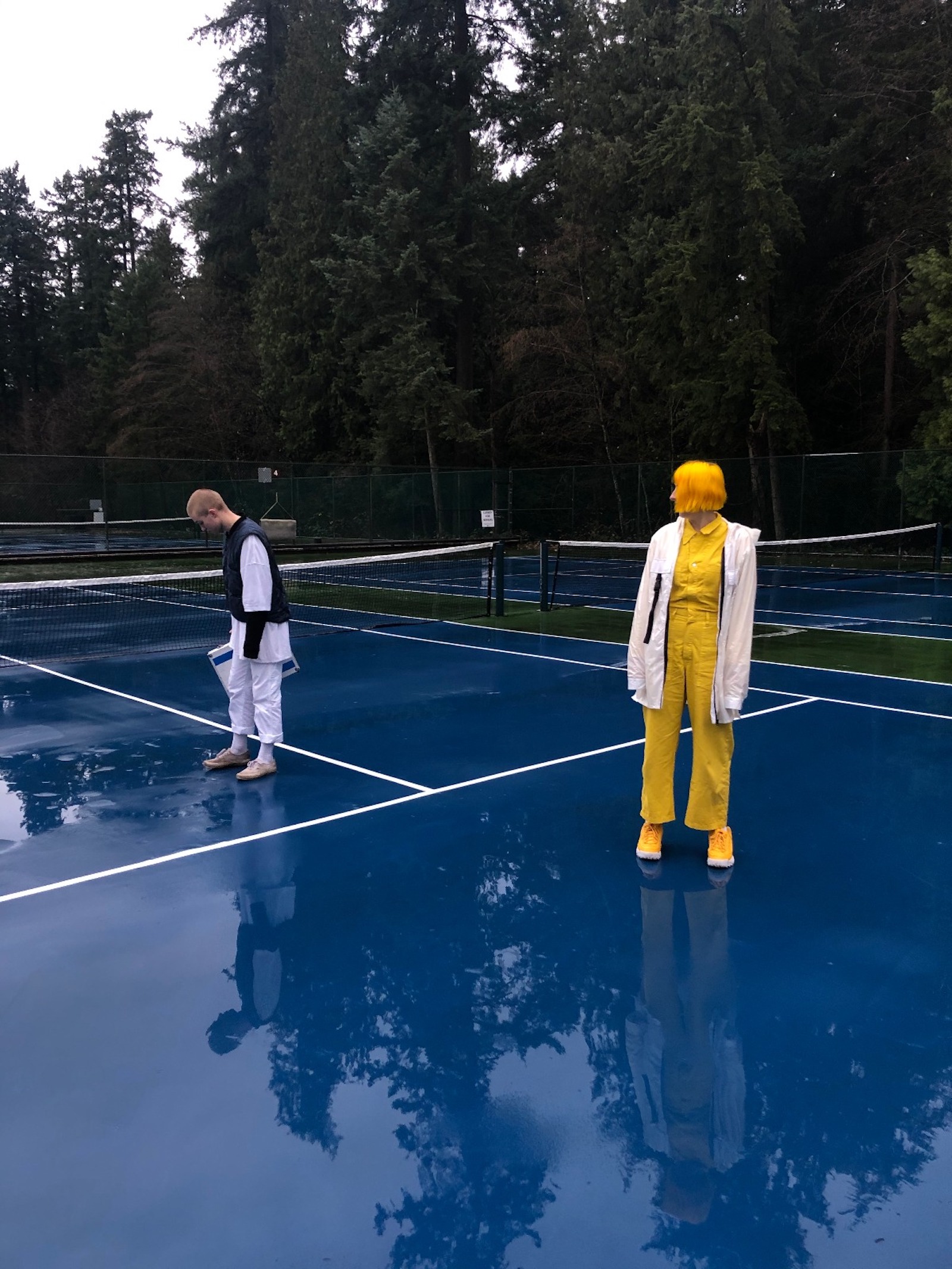
Tessa: Do you see social media as an extension of the art? Or do you see it as an extension of the artist? Or neither?
Nolan: I definitely think it depends on how the artist runs their social media because I’ve definitely seen examples of both. For me and the band though I would say it’s much more an extension of the artist. I see it as the best way to interact with fans and show our more human side. It’s more exciting to me the way that social media is able to connect artists and fans and its ability to build communities and that’s one of the most vital things because we would be nothing without the people who support us.
Tessa: Have you made any creative connections (besides me, haha) through social media?
Carson: Yeah we have made some creative connections through instagram or twitter with artists or creatives with similar views. It is honestly such a great way to get to know people in your community or even in other communities around the world and share creative ideas.
Tessa: Do you feel that social media can lead to genuine community and connection?
Carson: I really do believe that social media can facilitate the growth of genuine community or connection. I think twitter is a great example of that, I have seen even with certain groups who follow us showing the mutual connection of our music and creating deeper friendships from that, which all started on social media.
Aidan: Yeah it’s been really cool seeing people who like what we’re doing find each other and seeing all these groupchats and friendships pop up. Most of them are continents apart from each other, it’s really cool. I’m glad we can be that one mutual interest that brings people together.
Tessa: How do you think people can take their activism from social media to their physical community? What role do artists play in inspiring this activism?
Carson: I definitely think social media can be a powerful tool to organize events in your physical community, because of how available it is to everyone. Sharing information to your platform is one of the easiest ways an artist can play a role in realizing change in their community. I think anyone could change the world whether in science, the environment, or grassroots movements. It just takes someone to inspire you, and I think that is one of the artist’s roles
Aidan: Yeah I think the best thing we can use social media for, like Killer Mike said in Atlanta, is to strategize, organize, and mobilize. Using it not just to see what’s happening in the rest of the world, but to be more conscious of what’s happening in our own communities. Or if nothing’s happening, using it to start something in our communities. My favourite artists have always been people who kind of held a mirror up to the world and didn’t filter themselves, weren’t afraid to say what they felt. I think it’s (now more than ever) the responsibility of the artist to do that. People already dress like, talk like, or sound like their favourite artists, so imagine all of that influence guiding kids to instead fight for human rights and a better future. It would be unstoppable.
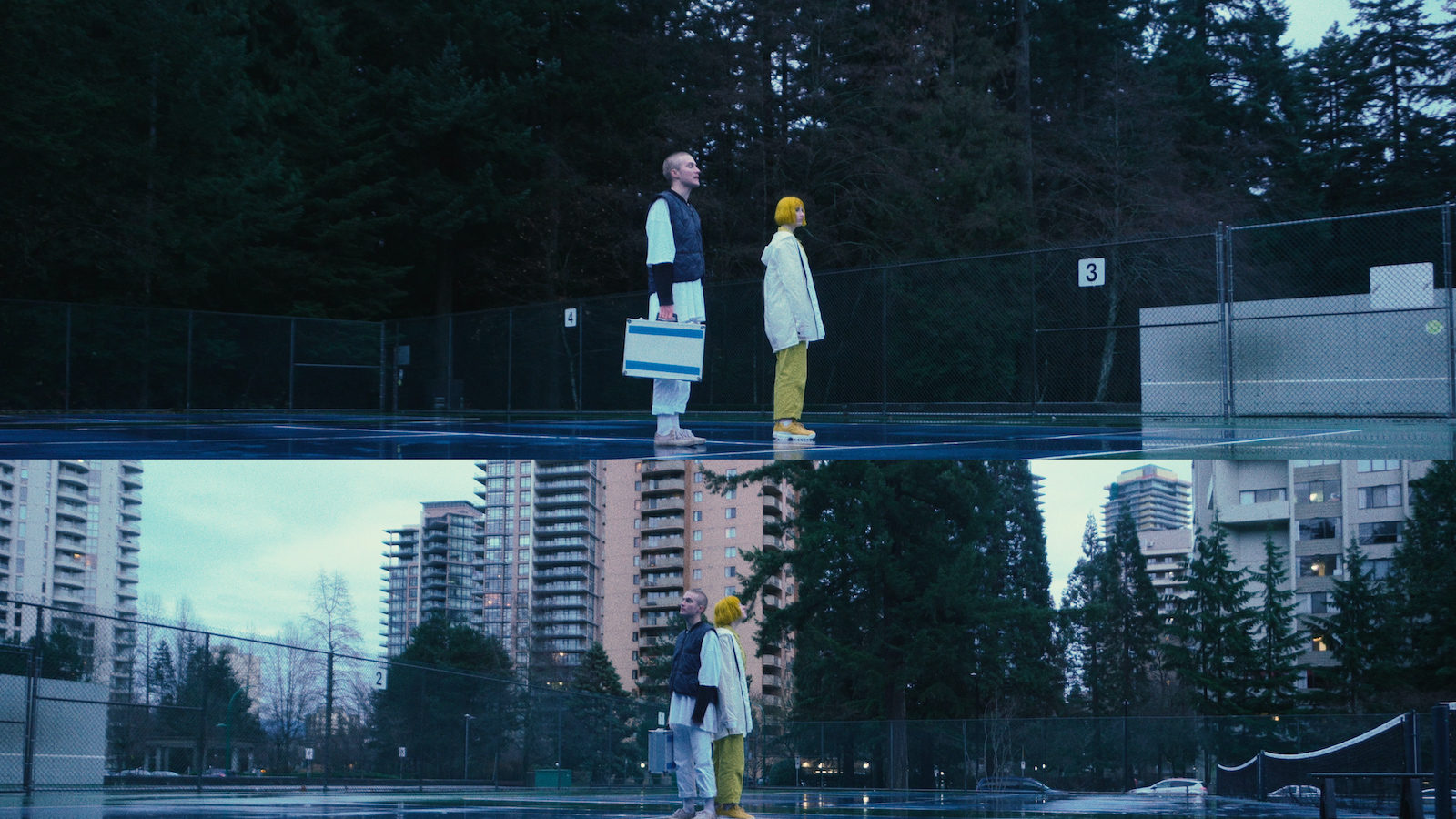
CONNECT WITH TESSA VIOLET
INSTAGRAM // TWITTER // SPOTIFY
CONNECT WITH DAYSORMAY
INSTAGRAM // TWITTER // SPOTIFY
photos / courtesy of the artists
story / Jessica Thomas
